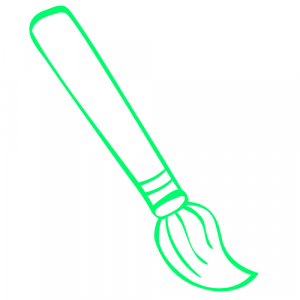In today’s world, there are many ways to make money. For some, it might be to play games that pay real money and for some others, it might be making use of an online platform to sell things. It can vary depending on each person. If you’re passionate about singing or anything related to music, there are many ways to make money from that as well. For instance, touring, songwriting, licensing, distribution, and monetization options all allow artists to generate income from their music.
Music is one of the top-earning careers in the whole world, but it can be difficult and time-consuming to explore these opportunities on your own.
In today’s digital era, artists have many options for generating income from their craft – traditional job opportunities like touring and songwriting are still important. Still, monetization options like licensing and distribution help artists earn more money in less time without taking on the risk of building up a fan base or marketing themselves.
With the advent of digital technology, people have started to make more money with their music online. For example, using your music on TikTok videos has become one of the fastest ways to ensure your songs go viral. Even more obscure songs, such as Beggin’ by Maneskin and Sarah Cothran’s cover of “As the World Caves In”, can make it big on TikTok – all you need is a few followers to get started, and if you’re lucky, your music will grow a following from there. To speed up the process, you might want to consider TokMatik TikTok likes as a way of boosting activity on your account. These are some more ways that people use to make money with their music:
- Selling downloads on iTunes, Spotify, and other digital platforms
There are different ways in which you can make your music available to the public. However, the most popular platform for digital music sales is iTunes.
It is a good idea to create a website or a blog where you can sell your music and keep track of sales. You can incorporate SEO services into your social media profile and can notice the visible growth. It will also help you with marketing efforts and keep up with digital music marketing trends. Also, when you have a website of your own, you can monitor the number of visitors as well as your potential clients. Additionally, you can use marketing to increase your music sales. For instance, you can engage in email marketing by using services that generate mailing lists, such as simplelists, to compile a list of potential customers for your music. That may eventually increase website traffic and, consequently, your popularity, which will help to drive up the price of your music exponentially.
Selling your music on digital platforms have become easier than ever before thanks to the rise of online stores such as iTunes, Spotify, Amazon Music, and Google Play Music which provide artists with an opportunity to reach millions of people worldwide. These stores offer vetted distribution channels that make it easy for us to share our work without compromising quality or originality.
- Selling physical copies of your albums
When releasing an album, the first thing that you should consider is what format to release it in.
For physical albums, the best option is to make a CD. This way, you can sell your album on your website and tour as well as use it for promotional purposes.
If you don’t want to release an album physically, releasing an EP digitally is another option. EPs tend to be made with a smaller number of songs which means they can be released faster and cheaper than full albums.
- Offering performance rights for live shows and events
More and more artists are turning to live events as a way to make money. However, there is a big gap in the industry that has not been filled yet: performance rights. Performers continue to be underpaid for live shows and events due to the lack of performance rights.
The performance rights for live events have always been a tricky situation for the event holders.
First, the performance rights can be complicated to negotiate because there are many performances, and some can be more difficult than others.
For instance, some performers may not want to work with certain producers because they don’t like their music style or sound quality is not up to the standards. In some cases, artists may not sign away all their rights in exchange for compensation from producers.
The best way to avoid these issues is by doing your research before hiring a producer and make sure you know what your options are for negotiation.
- Applying for trademarks or copyright protection
There are many ways to protect your music from piracy. You can register your songs with the United States Copyright Office, and you can apply for trademark protection or self-publish. Registration at the U.S. Copyright Office. U.S Copyright Office is one of the most reputable copyright registration agencies in the country and provides many benefits to musicians who register their work there.
The US Copyright Office gives artists more control over how their work is managed and distributed than if they had only registered through a company like BMI or ASCAP (which are only available to professional artists). Additionally, registering your work with the U.S. Copyright Office will give you notice of when someone infringes on your rights and allows you to take legal action against them through U.S courts or file an infringement.



